Say Goodbye to Single-Use: 10 Easy Swaps for a Plastic-Free Pantry
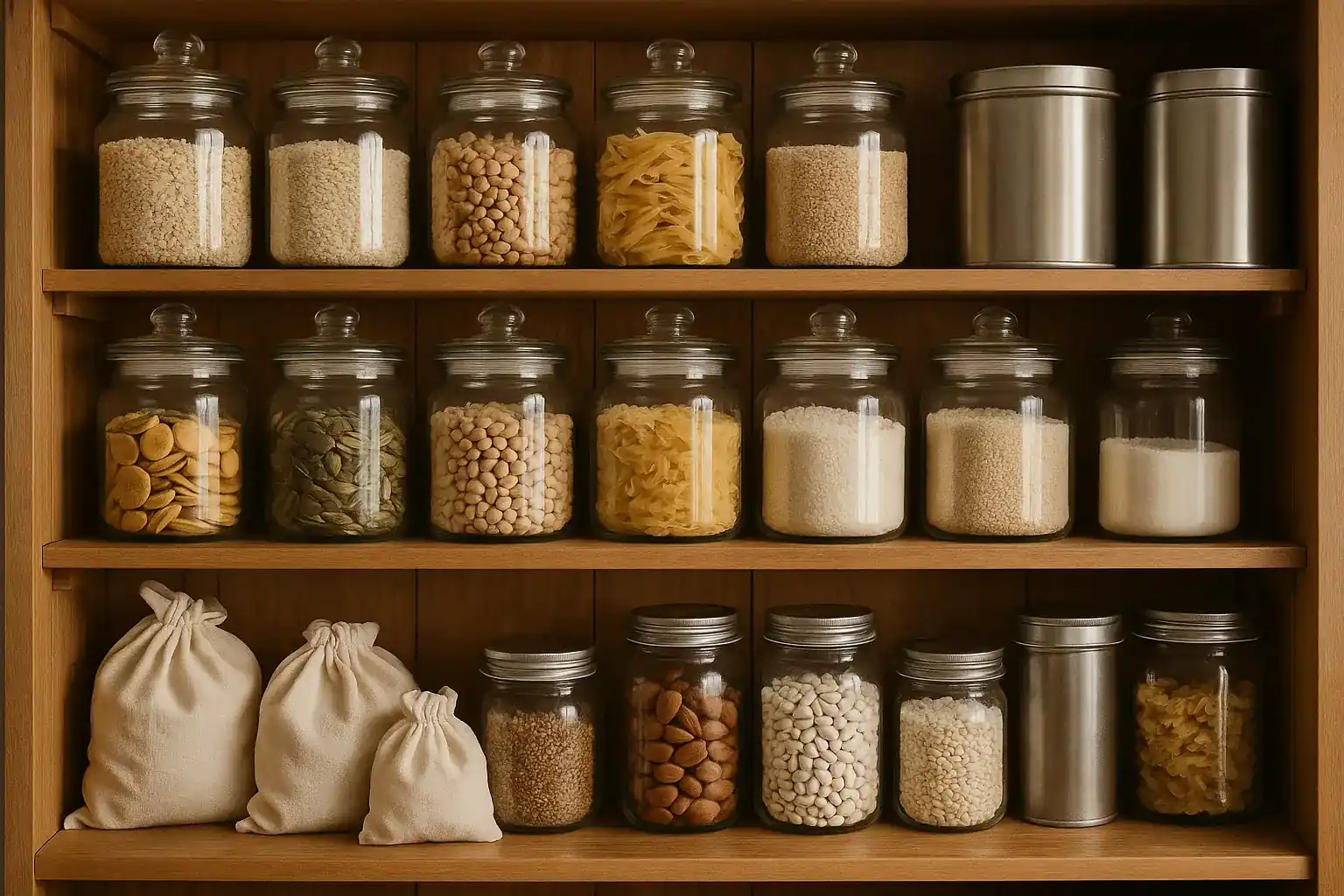
Peek into your pantry. Go on, open the door. Chances are, even if you're already making conscious choices, you'll see a lot of plastic. Cereal box liners, pasta bags, snack wrappers, plastic tubs of nuts, yogurt pouches, bread bags, plastic clips... the list goes on.
Plastic, while convenient, is a major environmental culprit. It's made from fossil fuels, persists in the environment for hundreds of years, harms wildlife, and contributes to pollution in our oceans and landfills. Tackling plastic waste can feel overwhelming, but your pantry is a fantastic place to start making manageable, impactful changes.
You don't need to overhaul everything overnight! Focusing on a few simple swaps can significantly reduce the amount of single-use plastic entering your home. These changes are not only better for the planet but can also lead to a more organized, healthier, and even more aesthetically pleasing pantry.
Ready to make some easy swaps? Let's dive in!
1. Swap Plastic Food Storage Containers for Glass or Stainless Steel
- The Plastic Problem: Plastic containers can leach chemicals into food over time, especially when heated. They also stain, retain odors, and eventually degrade or break, becoming waste.
- The Sustainable Swap: Invest in a set of glass or stainless steel food storage containers.
- Why it's Easy & Impactful: They are durable, non-reactive, easy to clean, last virtually forever, and look great! Glass allows you to easily see contents. This is a direct replacement that eliminates recurring plastic purchases and waste.
2. Swap Plastic Wrap/Cling Film for Beeswax Wraps or Silicone Lids/Covers
- The Plastic Problem: Single-use plastic wrap is used once (maybe twice) and then heads straight to the trash, where it will linger for centuries.
- The Sustainable Swap: Beeswax wraps (washable, reusable cotton coated in beeswax, jojoba oil, and tree resin) or reusable silicone lids/stretchy covers.
- Why it's Easy & Impactful: Beeswax wraps are pliable and cling to bowls or food items. Silicone covers stretch to fit various container sizes. Both are reusable for months or years, significantly reducing plastic waste generated every time you cover leftovers or wrap food.
3. Swap Single-Use Plastic Snack/Sandwich Bags for Reusable Fabric or Silicone Bags
- The Plastic Problem: Those convenient little bags for snacks or sandwiches are used briefly and then discarded, creating daily waste.
- The Sustainable Swap: Washable fabric snack bags with a food-safe lining or durable, reusable silicone bags with airtight seals.
- Why it's Easy & Impactful: Simple to wash and reuse hundreds of times. Perfect for packing lunches, storing opened snacks in the pantry, or keeping small items fresh. A direct swap that saves money and prevents daily plastic trash.
4. Swap Buying Packaged Dry Goods for Buying in Bulk with Reusable Bags/Jars
- The Plastic Problem: Rice, pasta, beans, nuts, seeds, oats, flour – many come in plastic bags or boxes lined with plastic.
- The Sustainable Swap: Find a local bulk food store. Bring your own lightweight cloth bags or jars, fill them with the exact amount you need, and pay by weight. Store these items in your reusable containers at home.
- Why it's Easy & Impactful: This tackles plastic waste right at the source! It also often saves you money as you're not paying for packaging, and you can buy just the quantity you need, reducing food waste.
5. Swap Plastic Produce Bags for Reusable Produce Bags
- The Plastic Problem: Even if you use reusable shopping bags, fruits and vegetables often get bagged in thin, single-use plastic produce bags.
- The Sustainable Swap: Keep a stash of reusable mesh or cloth produce bags in your reusable shopping bags. Use them for loose fruits, vegetables, and sometimes bulk items at the grocery store.
- Why it's Easy & Impactful: Lightweight and washable, they prevent those flimsy plastic bags from entering your home (and potentially your pantry if you store produce there).
6. Swap Individual Plastic-Wrapped Tea Bags/Coffee Pods for Loose Leaf Tea/Ground Coffee
- The Plastic Problem: Many tea bags contain plastic or are individually wrapped in plastic. Coffee pods are notoriously difficult to recycle due to their mixed materials.
- The Sustainable Swap: Switch to loose leaf tea stored in reusable tins or jars, using a tea infuser. Buy ground coffee in paper bags or bulk, storing it in an airtight reusable container.
- Why it's Easy & Impactful: Reduces significant amounts of daily plastic waste and often offers better quality tea or coffee.
7. Swap Plastic Chip Clips for Metal or Wooden Clips
- The Plastic Problem: Small plastic clips are often used to reseal opened bags of snacks, cereals, etc. They break easily and are made of plastic.
- The Sustainable Swap: Use durable metal binder clips or classic wooden clothespins.
- Why it's Easy & Impactful: A simple, inexpensive swap for an item that's often flimsy and breaks. Metal or wooden clips are more robust and last longer.
8. Swap Packaged Cereals with Plastic Liners for Bulk Cereal in Containers
- The Plastic Problem: Cereal boxes almost always contain a non-recyclable plastic bag liner.
- The Sustainable Swap: As with dry goods, buy cereals from bulk bins using your own reusable bags and store them in large glass jars or airtight containers at home.
- Why it's Easy & Impactful: Eliminates the inner plastic bag and often the outer cardboard box (if you label your containers), significantly reducing packaging waste from a pantry staple.
9. Swap Oils/Vinegars in Plastic Bottles for Buying in Glass or Refilling
- The Plastic Problem: Many oils, vinegars, syrups, and sauces come in plastic bottles.
- The Sustainable Swap: Whenever possible, choose brands packaged in glass bottles. Even better, find local stores where you can refill your own bottles with oils, vinegars, soy sauce, etc.
- Why it's Easy & Impactful: Glass is easily recyclable and doesn't have the same potential for chemical leaching as plastic. Refilling is the ultimate zero-waste option for these liquids.
10. Swap Convenience Foods in Plastic Tubs/Pouches for Making Your Own & Storing in Glass
- The Plastic Problem: Items like hummus, pesto, applesauce pouches, ready-made sauces, or spice pastes often come in plastic tubs or flexible plastic packaging.
- The Sustainable Swap: Make these items from scratch more often! Store your homemade hummus, pesto, or sauces in reusable glass jars or containers in the fridge or pantry (if shelf-stable).
- Why it's Easy & Impactful: This not only eliminates significant amounts of plastic packaging but can also be healthier and more cost-effective. It puts you in control of the ingredients and the packaging.
It's a Journey, Not a Race
Transitioning to a plastic-free pantry doesn't happen overnight. Pick one or two swaps from this list that seem most achievable for you right now. As those become habits, add a couple more. Every single swap, no matter how small it feels, makes a difference.
Reducing plastic in your pantry is a tangible way to reduce your environmental footprint, save money, and create a more organized and sustainable home. Start today, and enjoy the positive impact of your plastic-free journey!
Related Blogs
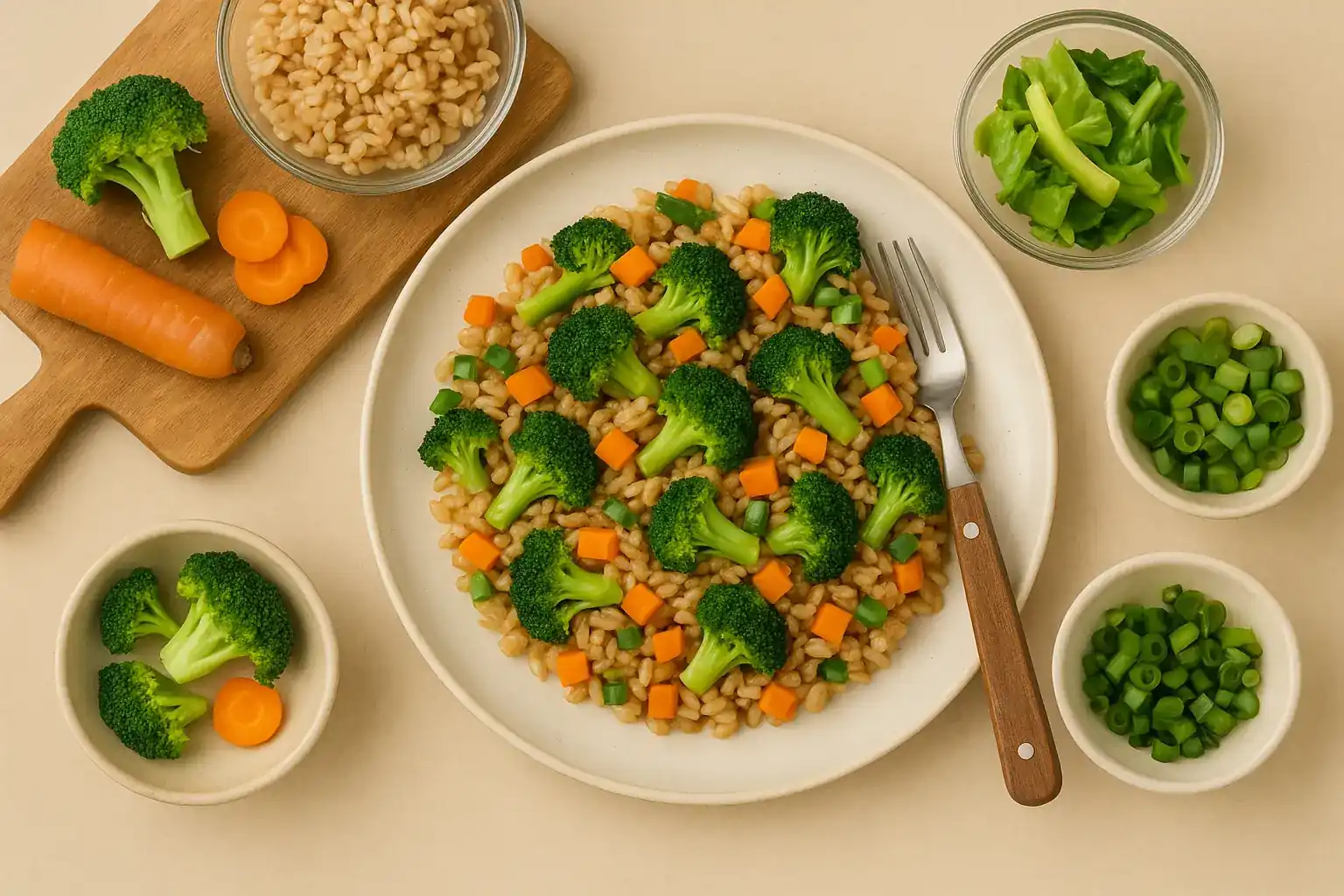
A Week of Delicious Transformations: Zero-Waste Recipes Using Your Leftovers
Insights on a week of zero-waste recipes using leftovers in a sustainable way.
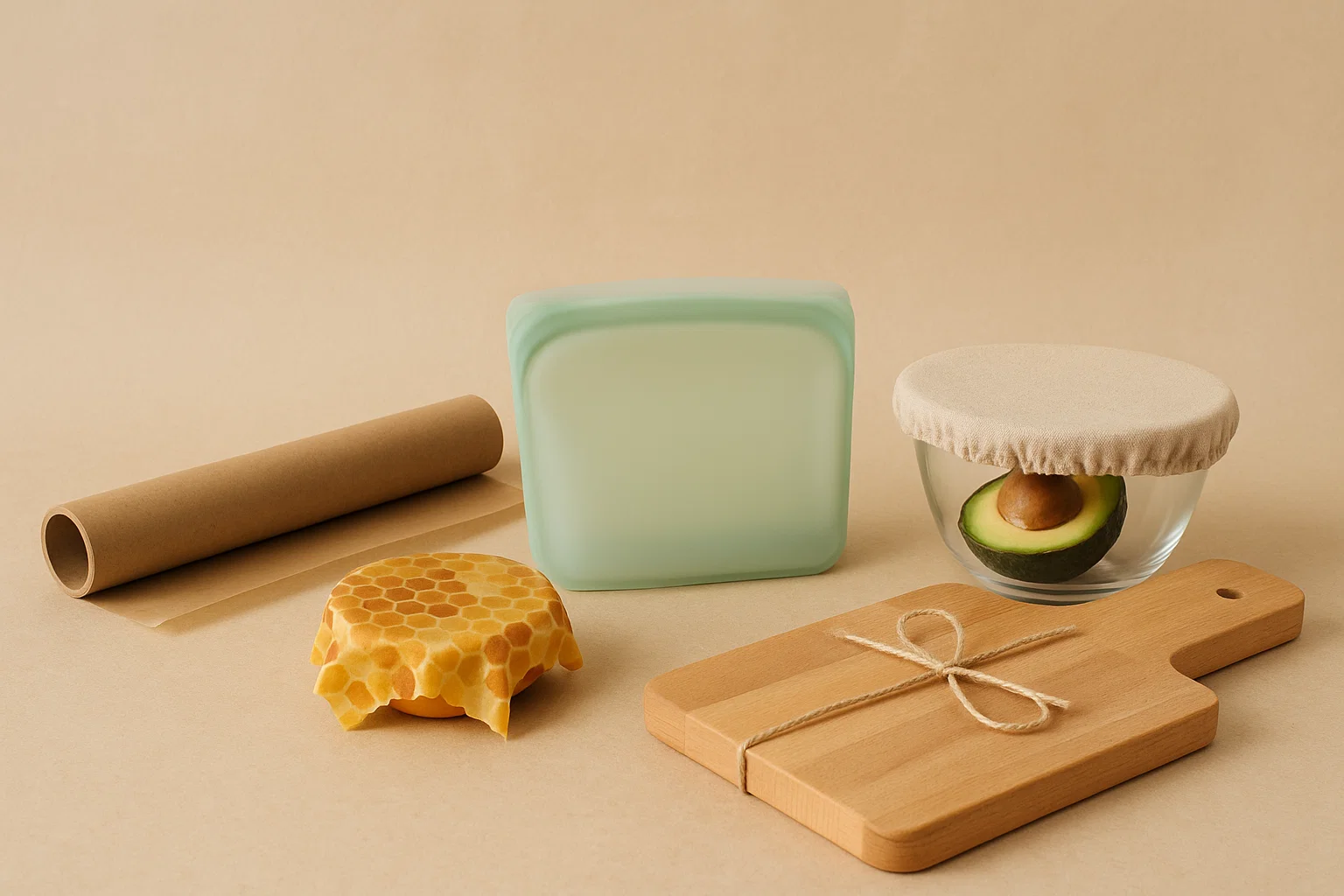
Beyond the Foil: Reusable Alternatives for Sustainable Baking and Food Storage
Opt for reusable silicone baking mats, covered bakeware, and beeswax wraps instead of aluminum foil.
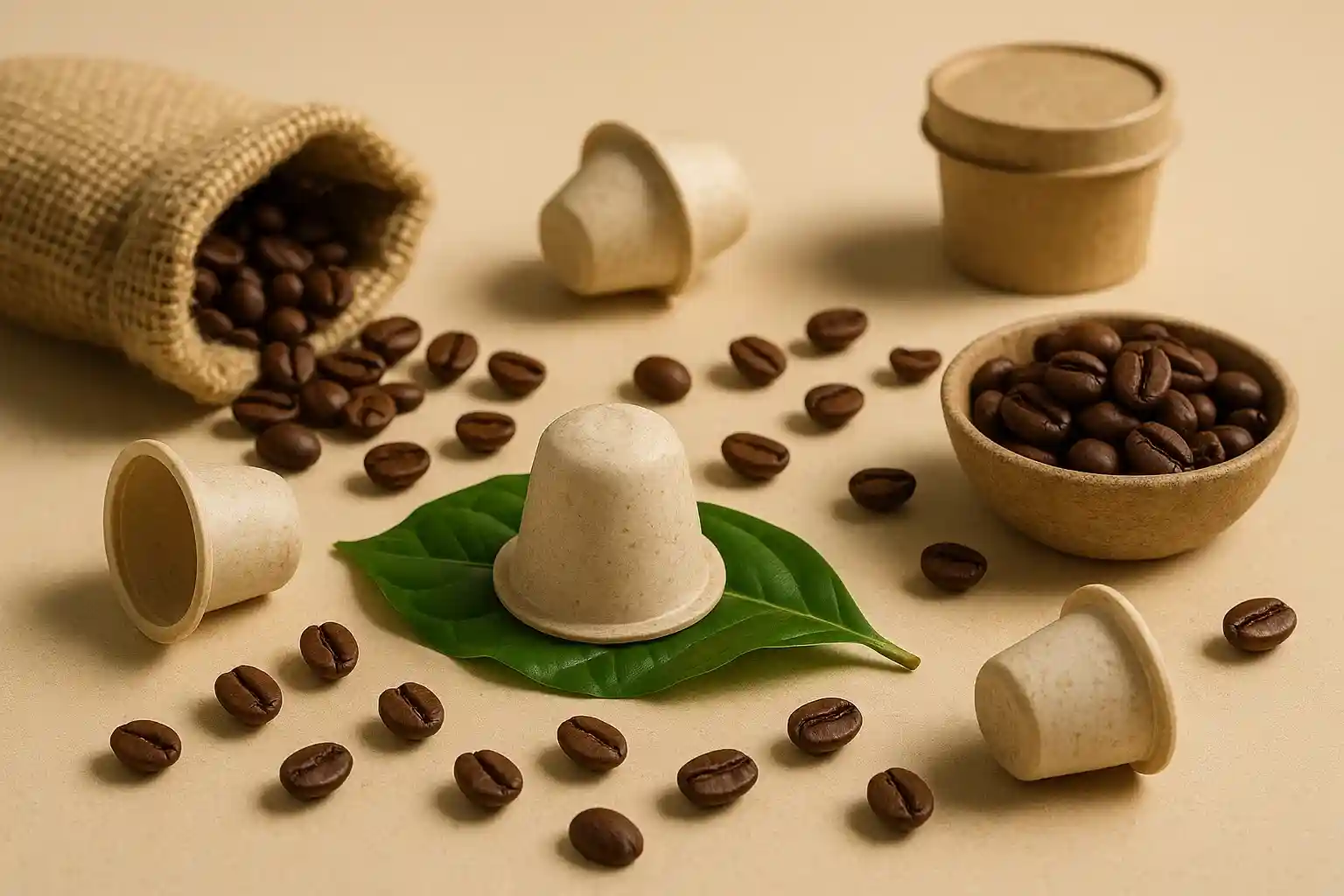
Brew Better, Waste Less: Sustainable Alternatives to Single-Use Coffee Pods
Lower waste and enjoy better flavor with reusable pods, French presses, or Moka pots.
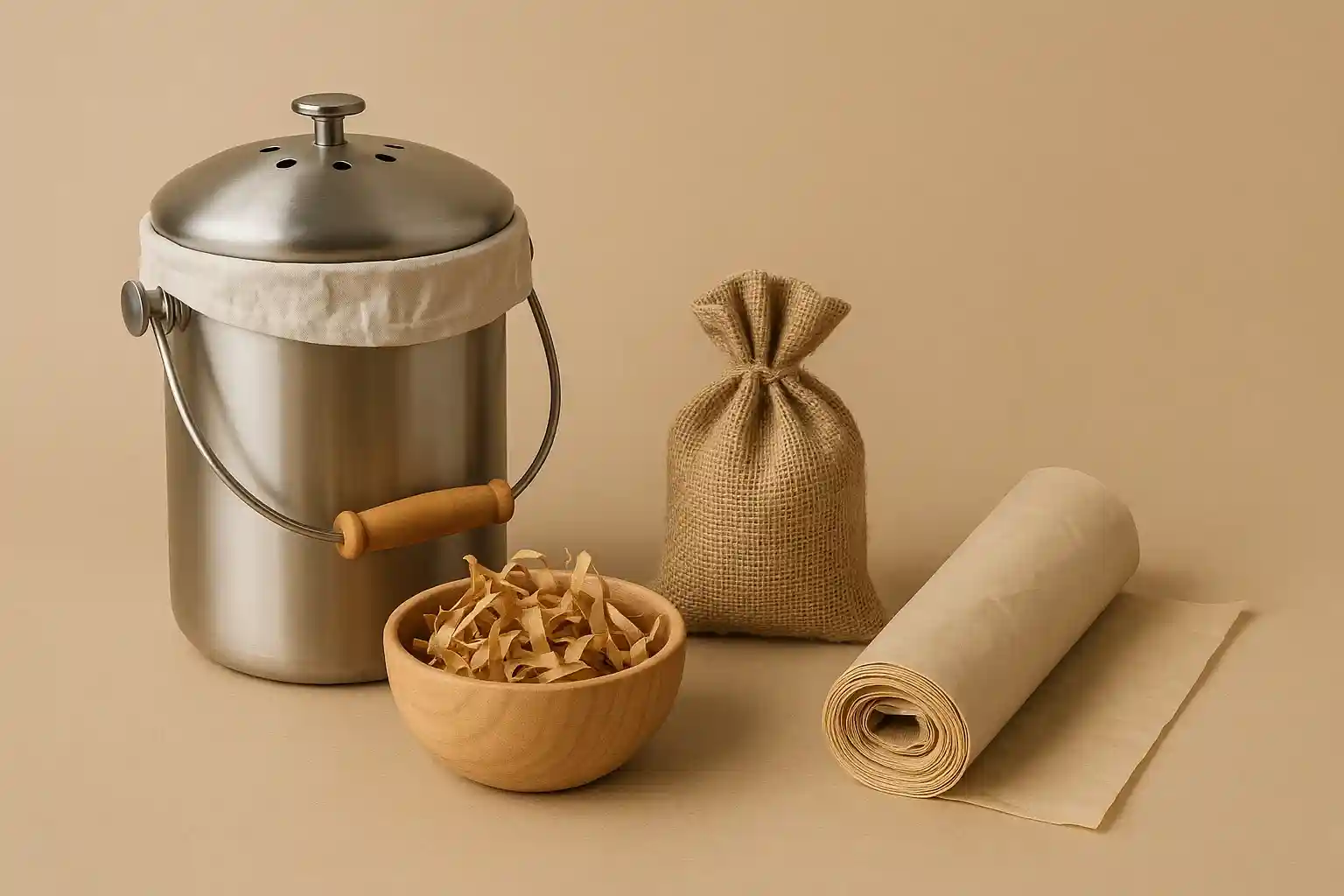
Compost Without the Carry-On: Sustainable Alternatives to Store-Bought Compost Bags
Reduce unnecessary plastic in composting with newspaper liners, bag-free bins, or DIY liners.
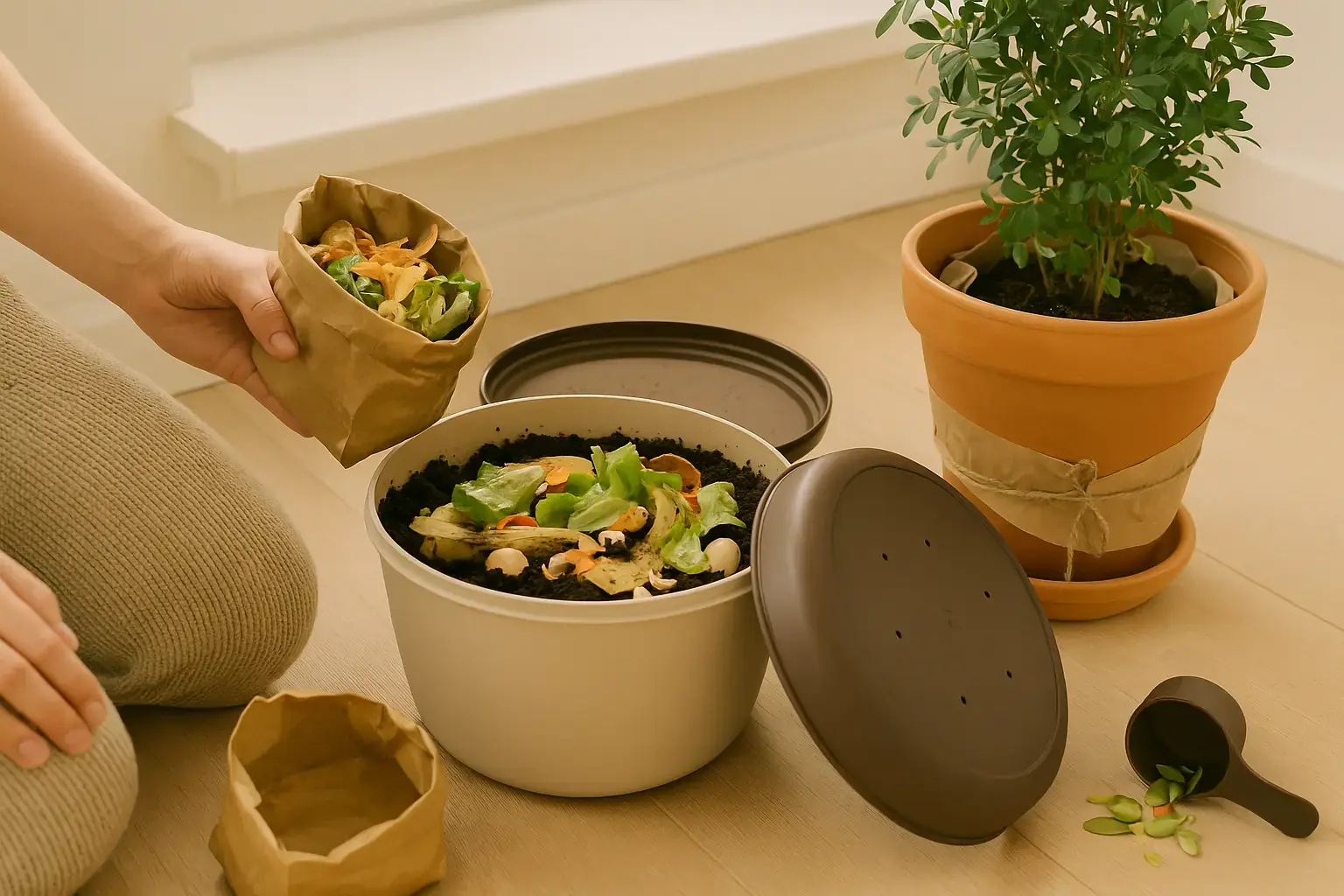
Compost Happens (Even in Apartments!): Your Beginner's Guide
Practical advice and actionable tips for composting 101.
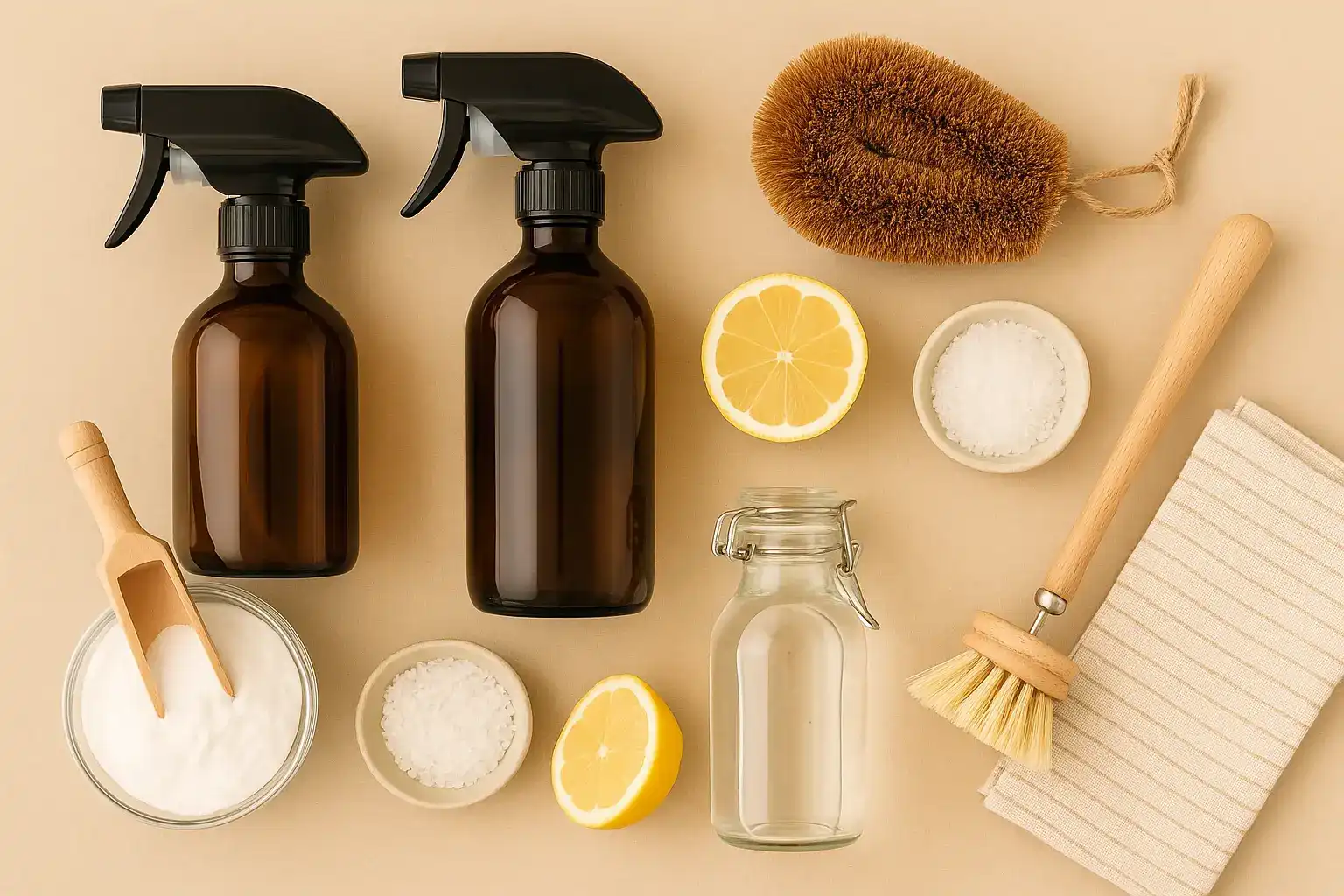
Sparkle & Shine Sustainably: DIY Kitchen Cleaners That Actually Work
Simple do-it-yourself ideas for an eco-conscious lifestyle.
Stay in the Loop
Get tips and insights tailored to your interests — no spam, just sustainability.